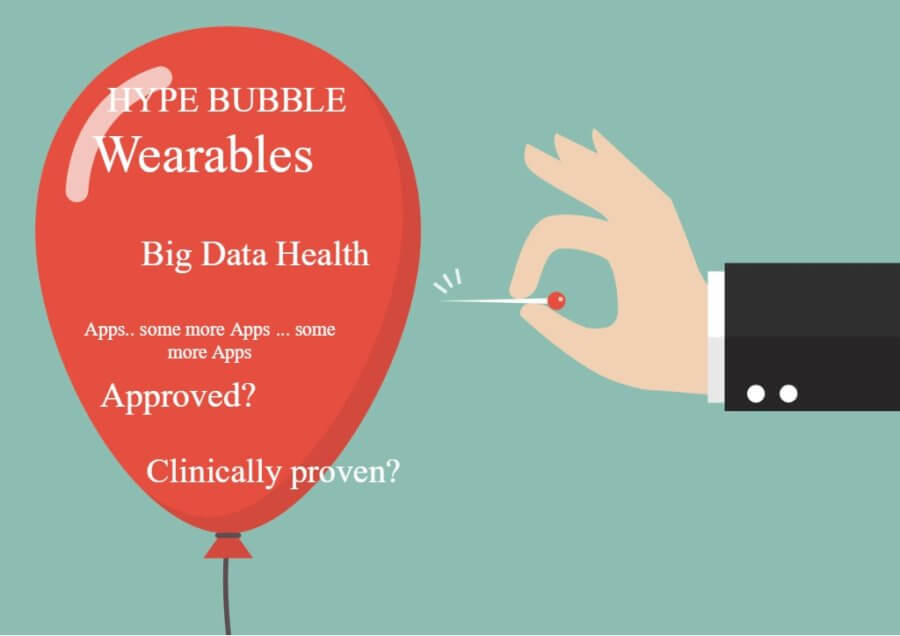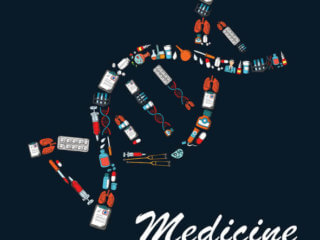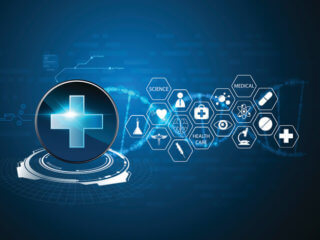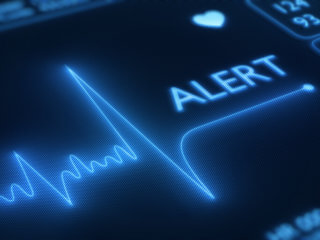Wearables & big health data making a real difference or is it just a hype bubble?
What was this data hype?
Management expert Peter Drucker once said, “What gets measured gets managed.” This statement summarizes most of the overt/covert promises of digital health as advertised to the general public. This, in turn, has been wholeheartedly accepted by the public, leading to the formation of the ‘quantified-self’ movement. However, scientific studies have generated mixed evidence that personalized digital health monitors such as wearable fitness trackers improve weight loss and exercise levels [1,2]. Most of these studies conclude that product development and evolution of digital wearable fitness technology is the key to improved health outcomes for consumers. However, one key aspect that often gets overlooked is the type of users. There is a significant difference between the sedentary consumer who buys a digital wearable fitness technology product with the hopes of kickstarting a healthy life and the active athlete who buys the same product only to measure and improve his current routines. Perhaps the primary reason for concerns about a hype bubble can be linked to the fact that the same products are being marketed towards all consumer demographics while disregarding their individual needs. This approach potentially provides the most benefit from a marketing standpoint, leads to customer dissatisfaction and eventually, the ‘hype’ criticism.
While digital healthcare and ‘big data’ concept are luring and promising, most people even health professionals are still skeptical about the real use of large amounts of digital data.
The process of integrating digital healthcare technologies including big data and devices that generate big data to the traditional healthcare model itself has become a challenging task, which is currently being addressed in many healthcare institutions. Their ultimate goal should be to incorporate digital data systems into the clinical decision process properly. Shahid Shah in his article on big data in healthcare says “…. Most people think that just displaying charts and graphs on a standalone dashboard will do the job, but the reality is far from this. Physicians and clinicians do not have time to hop through many screens to care for their patients. We need to embed such insights within the clinical workflows, so they have the right alert at the right time for the right patient.”[3]. Therefore, unless the big data platforms that are already in use or currently being introduced to the market should be interoperable with the currently-available EHR systems and clinical assessment process, they may be prone to eventual elimination from any clinical setting.
If the big data analytics and management are not addressing this issue, the hype of big data in healthcare may also burst soon.
| Recommended for you | |
| Preventive medicine in the omics era | |
| 10 Digital health technologies empowering patients | |
| Big data in medicine |
Why do many doctors ignore patient-generated digital health data?
Another reason that digital health data has become a ‘hype’ about to burst is the hesitance of the healthcare professionals to trust or use digital healthcare data, specifically ‘patient-generated’ data from wearables and smart phone apps. When patients present hundreds of spreadsheets of data on steps, heart rate, sleep patterns, etc, physicians disregard them as non-relevant or non-reliable information that can not be integrated into the clinical decision-making process. It is also possible that many physicians still do not have the required skills to analyze, understand and interpret the implications of such massive amounts of patient-generated data.
On the other hand, some physicians believe in the promise and value of patient-generated digital health data and also encourage their patients to maintain such digital records of their wellness and habits as they may find to be useful in enhancing the optimal health care outcomes [4]. Some physicians believe that even though the data may not be used by themselves, the patient empowerment and the personal health insights the patients gain from such data itself are an important aspect of digital health data. For instance, a counselor mentioned “It is not just me learning about them, they are learning about themselves……. They discover it because they pull it out of the data, which is much more powerful in my business than me figuring it out and telling them” [4].
Will ‘clinically-approved’ wearable digital health devices make any difference?
Perhaps the question lies where the distinction is drawn between the digital healthcare data generated with ‘doctor’s orders’ and the ‘patient-generated healthcare data.’ Some studies suggest that physicians do not agree to make clinical decisions based on digital health data generated from devices that are not clinically approved [5]. In fact, pilot studies which evaluate the proper use of digital devices for enhancing patient health outcomes have increased immensely giving more hope for clinically approved or accepted devices being used at the clinic. With the increasing number of studies illustrating the usefulness, accuracy, and reliability of these devices, so far many devices have been approved by FDA and are currently being used in clinics (Table 1). Many of these apps, devices, and wearables are connected to hospital EHR or other smartphone apps which collect the data, transmit to appropriate personnel such as health care providers to achieve its purpose.
| Table 1. FDA-approved digital health devices, wearables, and apps |
||||
|---|---|---|---|---|
| Disorder | Parameters measured |
Device | Type of device |
References |
| Diabetes | Prescriptions | BlueStar from WellDoc | mobile prescription therapy app | [6,7] |
| Glucose monitoring | Dexcom G5 Mobile Continuous Glucose Monitoring System – P120005/S041 |
body-worn monitoring/sensor | [8-10] | |
| Glucose monitoring | The 670G System – P160017 | monitoring | [8] | |
| Glucose monitoring | iPro2 Continuous Glucose Monitoring System – P150029 | monitoring | [8] | |
| Glaucoma | CyPass® System (Model 241-S) – P150037 | monitoring | [8] | |
| Insulin pump and glucose monitoring | Glooko Mobile App | mobile app | [11] | |
| Cardiac diseases | ECG, respiratory rate, activity | BodyGuardian Heart Remote Patient Monitoring System from Preventice Solutions |
monitoring | [12] |
| Pacemaker | Micra Transcatheter Pacemaker System – P150033 | implant | [8] | |
| Heart valve | Sorin Perceval Sutureless Heart Valve – P150011 | implant | [8] | |
| Obesity | weight loss (non-surgical) | AspireAssist – P150024 | implant in stomach | [8,13] |
| weight loss | Obalon Balloon System – P160001 | swallowed and stay in the stomach | [8] | |
| Mobility/Pressure ulcers | patient’s position and movements | Leaf Patient Monitoring System from Leaf Healthcare | wearable sensor | [14] |
Our conclusion
Whether confirmed or not, whether the applications are global or not, the future of healthcare still is based on digital data.
While the recent development of the FDA’s special digital health unit presents some hope that many of the digital health devices may get evaluated for clinical use, it is evident that the digital healthcare and big data applications go way beyond wearable digital health devices [15]. And as any hype bubble, the digital health data bubble will also burst eventually, and there will be new advances in the digital preventive healthcare that will grab the attention of the public. It is needless to say that, everyone expects that the digital health data ‘hype’ may stay a true ‘hope’ for improved personalized precision medicine.
Image credit: www.istockphoto.com

















